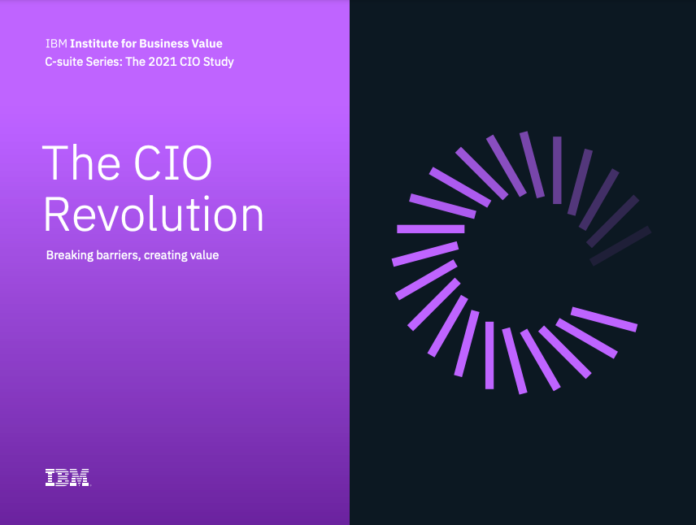Tech chiefs — CIOs and CTOs — are going to be most critical over the next few years at more than twice the rate of CMOs, CHROs or any other position excluding CFO and COOs, a new new IBM Institute for Business Value showed.
The IBV 2021 CIO study surveyed 2,500 CIOs from over 45 locations and 29 industries. It was conducted in cooperation with Oxford Economics and benchmarked against nearly 20 years of IBM’s C-suite surveys.
Results suggest that CIOs’ influence on business strategy and operations is growing as technology pervades surveyed enterprises.
“The COVID-19 pandemic has accelerated the need for AI and hybrid cloud applications to power business critical processes,” said Kathryn Guarini, CIO of IBM.
“In our post-pandemic era, the role of technology has never been more critical and it’s up to CIOs to influence strategy, break down internal silos, and drive agility and innovation across every part of the business,” said Guarini.
The number of CIOs surveyed reporting high maturity in AI-enabled workflows increased 560% compared to two years ago, and 37% of CIOs surveyed cite process automation as the top opportunity for positive impact within their organizations.
Respondents indicated the greatest use of automation is in IT, finance, and manufacturing – at 40%, 35%, and 35% of workloads, respectively.
Hybrid cloud is a key underpinning for AI-powered intelligent workflows. The number of CIOs surveyed reporting high maturity in their hybrid cloud operations increased 700% compared to 2019.
Many CIOs are also looking to use technology to drive progress against corporate objectives like sustainability. More than two-fifths (42%) of CIOs surveyed expect technology to have a significant impact on sustainability in the next three years — highest of all areas of impact.
However, only two in every five CIOs surveyed report they frequently interact with CTOs, despite the fact that effective collaboration can drive financial benefits.
The consequences of this disconnect can be significant – if CIOs and CTOs are using data and AI for different use cases without coordination across culture, processes and tools, the organisation may lack a cross-company view and ability to govern critical data properly.
Further, 83% of CIOs surveyed say they implemented remote work strategies, but only 23% expect remote workplace changes from the COVID-19 pandemic to become permanent.
In contrast, nearly two in three (65%) employees surveyed report they’d prefer to work exclusively remotely or in a hybrid model, if given the choice.
IBM recommends that business leaders embrace an open hybrid cloud approach and AI technology to help drive enterprise agility, innovation and growth. They also suggest for leaders to bridge the divide with the CTO to expand technology’s leadership influence.
















